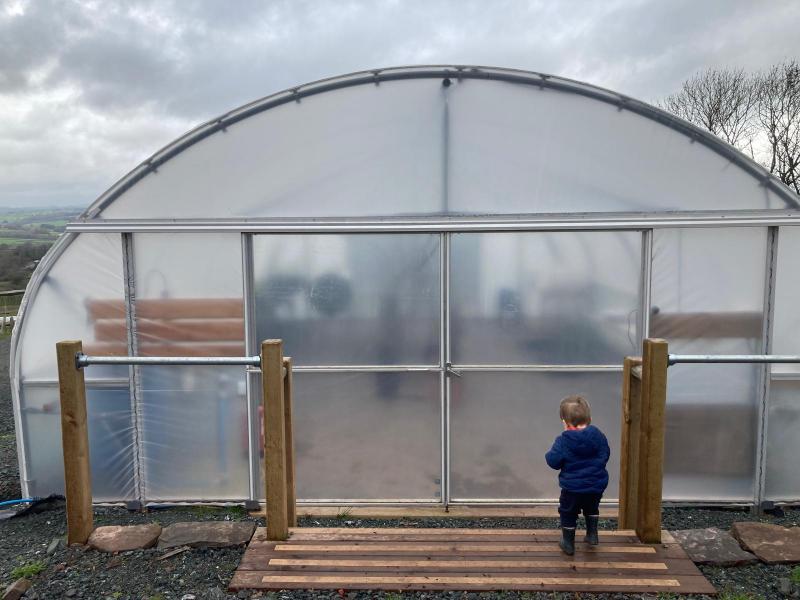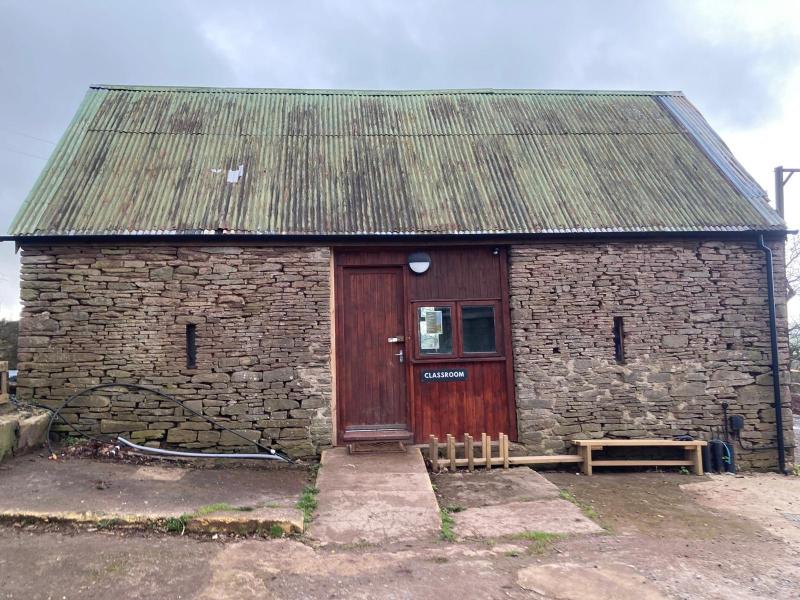As the team working on Farm-based education in the UK share their research, Matt Williams reflects on what it is that makes this particular type of educational practice so exciting.
I was inspired. Returning from a workshop tour, a walk around a polytunnel and a lengthy gaze over the Bannau Brycheiniog National Park, I was inspired to learn. Not inspired to learn so that I could know more, but so that I could do more. More specifically, I was inspired to learn how I could play my part in a flourishing ecosystem of people, plants and animals. Isn’t this what education is supposed to do, to cultivate a connection between people and place for the mutual benefit of all? This is certainly at the heart of St Mary’s University’s Vision 2030.
A wellbeing crisis in education

If everyone involved in education enjoyed high levels of wellbeing, there would be no need for ventures like the CWE to exist. But the fact is there are serious problems to be tackled. The experience of learning is increasingly individualistic, screen-based and indoors. This reflects (and reinforces?) the cultural character of ‘developed’ societies such as the UK, which are beginning to feel the consequences. Mental and physical health issues caused or at least exacerbated by isolation, sedentary lifestyles and poor diet are mushrooming.
Unfortunately, this pattern of life characterises most of the best paid jobs towards which ‘successful study’ aspires. As well as being disastrous for wellbeing, it increases the gap between the high-earners who are gifted in a ‘cognitive’ kind of way (or those with the resources to develop these skills) and those whose strengths lie elsewhere. This matter of social justice will soon affect everyone, as there are nowhere enough ‘head-focused’ jobs to sustain employment for all.
Farms – an unlikely source of inspiration?
One group who are particularly disenfranchised by the current situation are agricultural sector workers. Their dissatisfaction and sense of alienation from the establishment came to the surface all over Europe with enough force to impact the results of the June 2024 European elections. The fact that few people were aware of their plight before then (a state of ignorance to which many have returned) only illustrates the point. Farmers are squeezed by higher input costs, lower produce prices and the burden of responsibility for solving our ecological problems.
Yet farms are places that bring literally all of us life. And at their best – when not thoroughly industrialised – they are life-giving places of relationship with land, animals and fellow human beings. So there would seem to be potential there to connect more people to an ‘agrarian’ way of being that is personally beneficial and brings social, political, economic and environmental payoff. Many of those involved in community farms or formal agricultural training already benefit, but could such experience prove inspirational for those in more conventional education?
Researching farm-based education in the UK
I set out with my project team (Dr Lena Maria Lorenz and Mr Jack Crone) to answer this question. The first step was to get a sense of what farm-based education looked like and what kinds of conversations were happening about it. It turns out that tens of thousands of people across the globe, from early childhood up to adult education, formal and informal, are engaged in various types of farm-based education. Most of the large-scale programmes, formalised networks and (not surprisingly) research projects happen in the USA and the Nordic countries. But the UK has the same range of activity, if on a lesser scale and with less publicity. As well as formal agricultural training, we have school farm visits, alternative provision, social farming (or care farming) and a range of community engagement work that lets people learn on farms.
We wanted to dig a bit deeper and so we spoke to several practitioners and organised four site visits to organisations practicing farm-based education. This prepared us to conduct formal research interviews with 6 practitioners, students or researchers, some of whom were from the organisations we visited. It was fascinating to gain insight into the rich variety of work being done in this area, largely unknown to the majority of the public.

So what makes farm-based education sustainable and what are its unique benefits? There were three big areas that our interviewees drew attention to. Firstly, context is all important. No sustainable work is possible without a fully functional farm (not just some token chickens!), a flexible financial base (not just reliant on one income stream) and appropriate accreditation framework. Secondly, the main concerns that drove each project were care for the environment (including land, animals and food system) and experiential education geared towards whole-person development. Thirdly, farm-based education has a capacity to facilitate a unique range of connections. Everyone interviewed agreed that involvement in this work, within any educational context, allowed people to forge new relationships with their place (including the land, plants and animals), their food and their fellow community-members. Not only this, but through this process of making external connections, internal parts of people are reconnected, so that people learn to relate to themselves in a new way too.
Cultivating wholeness
If you go to a place like Black Mountains College, you spend as much time in the forest, the fields, the workshop or the polytunnel as you do in the classroom. The rightness of this kind of educational setting at a deep human level setting comes through in all our interactions with those involved, as well as my two-yr-old son, who bounced around and pretty much enrolled himself in advance. Already there are government schemes for schools to encourage farm visits and the number of farm-based education projects is on the rise. But these experiences are still accessible to relatively few, and the disconnections between people, nature, food and themselves continue reach new levels of crisis. What is worse, this fragmentation is reinscribed in our educational systems and culture. Farm-based education will be a vital component in reversing this trend; perhaps the ‘teacher as gardener’ explored in our last blog ('Sowing the seeds for a new way') is more than a metaphor after all!
Dr Matthew N. Williams, Honorary Researcher, Faculty of Education, Theology, and the Arts
Biography
Matt Williams is a researcher, lecturer and community farm worker who uses his theology to inform innovative farm-based education practice. You can find out more about his projects by watching the webinar recording here and inquire about potential collaboration by contacting him at matt.williams@stmarys.ac.uk.